Poetry collection ‘ZOM-FAM’ finds meaning in silence
Kama La Mackerel reconnects with lost traditions and gives voice to silenced ancestors
ZOM-FAM (2020) is a debut poetry collection by multidisciplinary artist Kama La Mackerel. Translated from Mauritian Creole, the title means Man-Woman or transgender.
Through poetry, La Mackerel revisits childhood memories. They also explore gender identity by honouring the silent stories of female ancestors—stories buried beneath years of colonial oppression.
“ZOM-FAM represents a way of existing and being transgender outside of colonial frameworks. [This work] represents a way of healing the child in me,” said Kama La Mackerel.
Before La Mackerel compiled a poetry collection, they only wrote poems for stage performances.
After listening to La Mackerel’s performances, book publisher Ashley Fortier knew that the poet would write an excellent compilation.
“Kama has such a presence and such an ability to captivate different types of audiences, to speak truth to power, and to put themselves out there in honest and creative ways,” said Fortier.
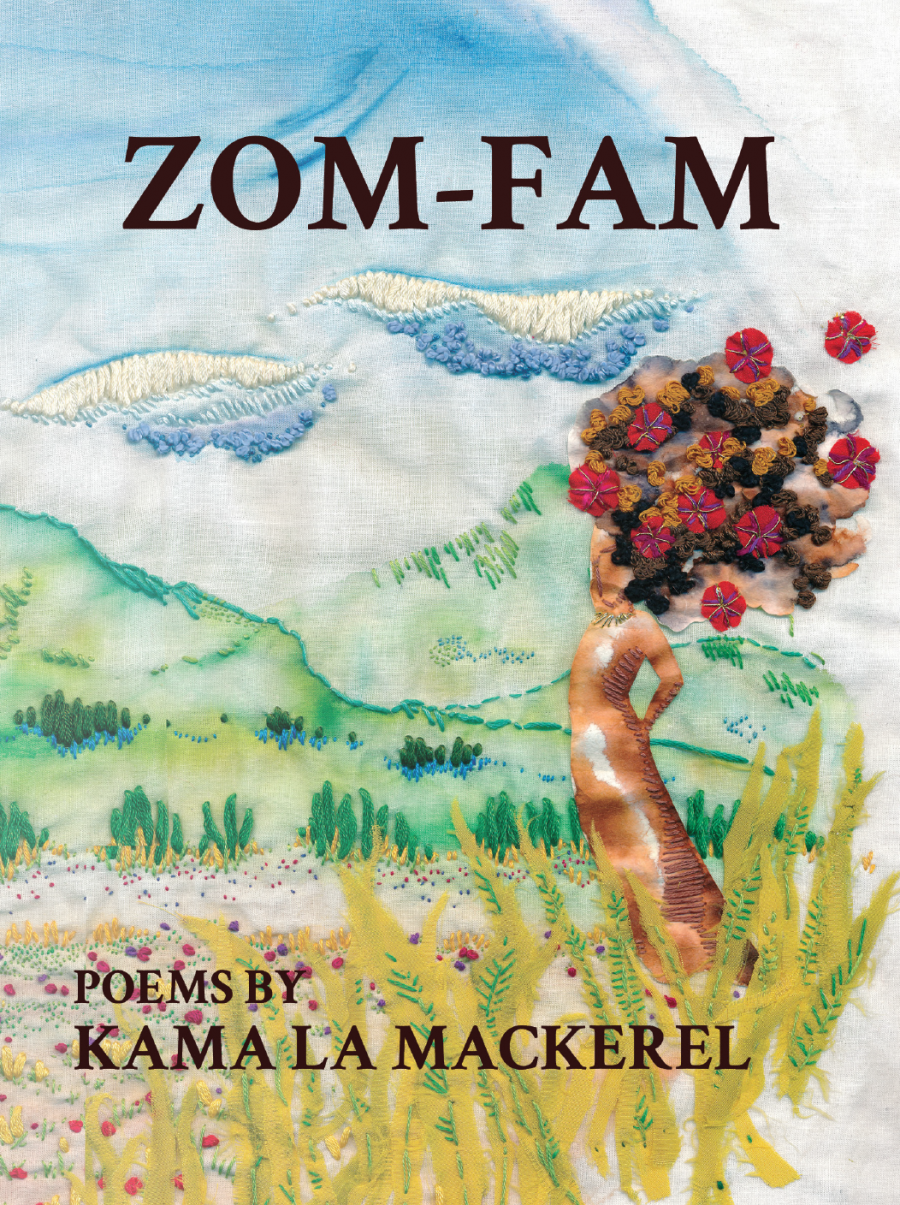
Finding identity through ancestral bonds
ZOM-FAM takes place in Mauritius, a tropical island-state in the Indian Ocean, where La Mackerel grew up.
In the 19th century, the British abolished slavery, but they still sought cheap labour to maintain African sugar cane plantations. So, the colonists turned their heads to South Asia and took indentured servants across the 'Kala pani' to the colonies.
Kala pani is the Hindu word for “black waters.” This term describes a cultural death that happens when one leaves their homeland as an indentured servant.
Many years later, the descendants of indentured servants feel this death and long for spiritual connection to India. La Mackerel identifies this longing as a “ripple of agitation” that Indian-Mauritians harbour in their hearts.
For this reason, La Mackerel finds it hard to connect to their homeland. As mentioned in ZOM-FAM, La Mackerel forgets traditions that connect them to ancestors. So, to strengthen loose ties to ancient customs, the poet cherishes the fragmented homeland memories—passed down from generations.
Read more: The wonderful world of independent Montreal bookstores
This practice—the use of homeland beliefs to build new ones—has a long history on the island.
According to religious scholar Paul Younger, Indian-Mauritians built belief systems from shattered homeland mythologies. They repurposed ancient mythologies to meet their spiritual needs in Mauritius. Likewise, La Mackerel relies on this method to construct a personal identity.
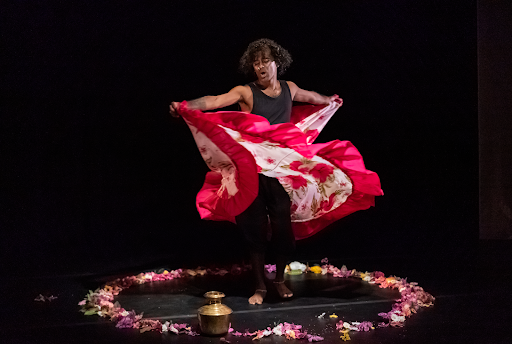
La Mackerel breathes life into silenced stories
In ZOM-FAM, La Mackerel pays attention to the emotional weight of silence.
“I knew, even as a child, that there was a lot of silence around me, that there were a lot of unspoken [realities] especially from my femme lineage,” they said. “For me, as someone who identifies as femme, I was caught in that silence.”
Through poetry, they assign language to the silenced stories of female ancestors—no matter how unseen, unheard, or undefinable.
“One of the things that I realized was that the stories around those silences are complex, and to be able to articulate that complexity, I had to allow a lot of nuance,” said La Mackerel.
When words cannot accurately describe a concept or feeling, the poet relies on silence to express the depth of feeling.
In one part of the collection, La Mackerel describes how they became the “timid child / the helpful child / the studious child / the good child.” They assumed this persona to mask their gender fluidity.
In ZOM-FAM, they write: “Good because you’re quiet / good because you never speak / good because you’ve learnt to / erase yourself / to disappear.”
“I knew, even as a child, that there was a lot of silence around me, that there were a lot of unspoken [realities] especially from my femme lineage.” — Kama La Mackerel
Between each of these phrases, there are blank spaces. Buried in these silences are the complexities they could not express.
The poet also writes about their complicated relationship with their father. When La Mackerel was a child, their father did not accept their gender identity.
On this issue, La Mackerel writes that they can still feel, “[…] the bitter burn of his right hand against my child face / whenever he caught me in a dress.”
Despite how La Mackerel may have felt in that moment, through poetry, they accept all aspects of their father—the good and the bad, the nurturing qualities and damaging attitudes.
“Parents can be harmful, and they can also love and nurture,” said La Mackerel.
The artist showcases each character through a kaleidoscopic lens. The poems emphasize the complexities, the conflicting emotions, and the hypocritical judgments that drive their family members.
“You know, it’s not because your parents love you that they can’t harm you, and it’s not because they harm you that they are bad,” they said.
ZOM-FAM has won many accolades since its release. In 2020, it was a finalist for the Quebec Writers’ Federation Concordia First Book Prize.
One of the judges for this prize was award-winning poet Hasan Namir.
Namir was surprised by the number of personal stories La Mackerel captured in their work.
“The whole book resonated with me, and I was getting goosebumps all over my body while reading it, ” said Namir. “The poems often are like calls for prayers, songs of hope.”

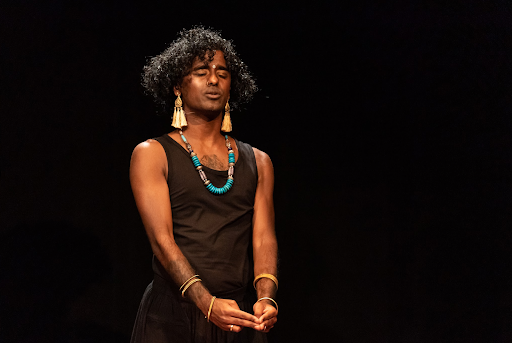


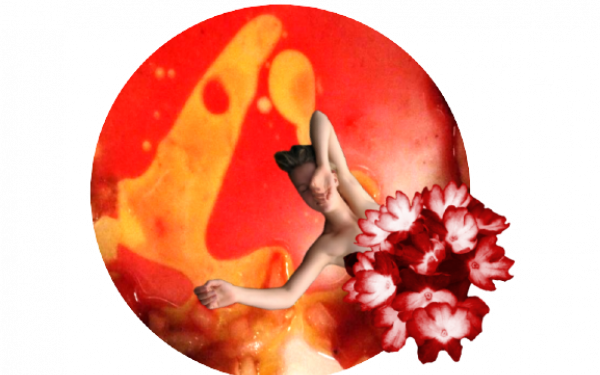
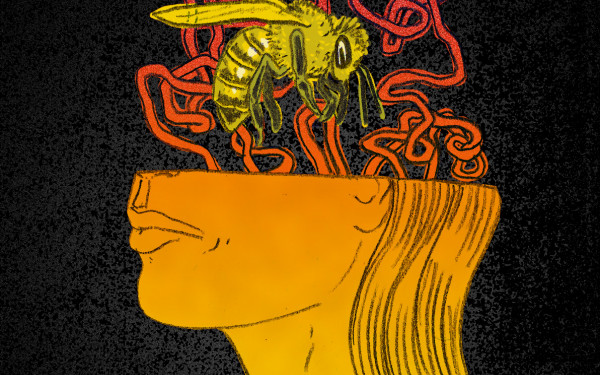
-2_600_375_s_c1.png)
